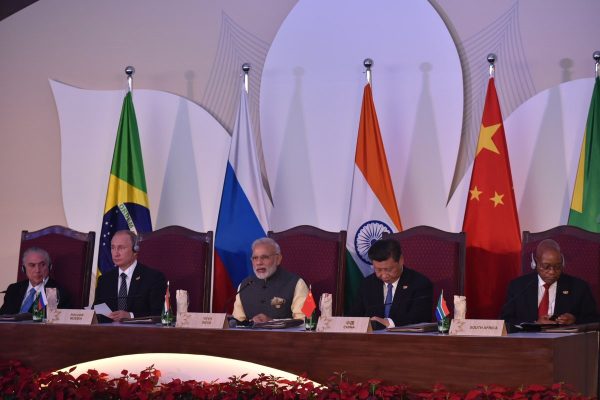

Follow us on:  
|


South African President Jacob Zuma, Chinese President Xi Jinping, Indian Prime Minister Narendra Modi, Russian President Vladimir Putin and Brazilian President Michel Temer at the BRICS Summit in Goa, India on 16 October 2016 [Image: BRICS2016]
He said that while the ‘big three’ agencies – such as Fitch, Moody’s and Standard & Poor’s – were all based in advanced developed countries, India can use the proposed BRICS credit ratings agency to bypass what Delhi says are unfair credit criteria.
India has long been arguing for the urgent need to establish an international credit rating agency to offset the biased agendas of some of the rating agencies.
Former Indian union commerce and home secretary G K Pillai had said earlier in 2012 that “the control of intelligence and information is so biased in many ways. We have international credit rating agencies like Moody’s and Standard and Poor, so on that come out with reports that have immediate impact on countries”.
To that end, Prime Minister Narendra Modi in October announced during the BRICS Summit in Goa that the leaders of the five countries had agreed to “explore the possibility of setting up an independent BRICS Rating Agency based on market-oriented principles”.
“In order to further bridge the gap in the global financial architecture, we agreed to fast track the setting up of a BRICS Rating Agency,” Modi said at the time.
The BRICS leaders have been encouraged by the opening success of the New Development Bank (NBD) they established in 2015.
The NBD in 2016 approved loans amounting to $900 million to green projects in each member state, and it was announced during the Goa Summit that it will lend $2.5 billion in 2017.
The BRICS Post with inputs from Agencies